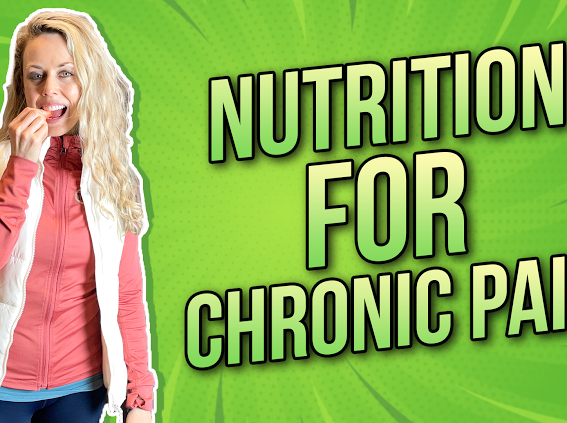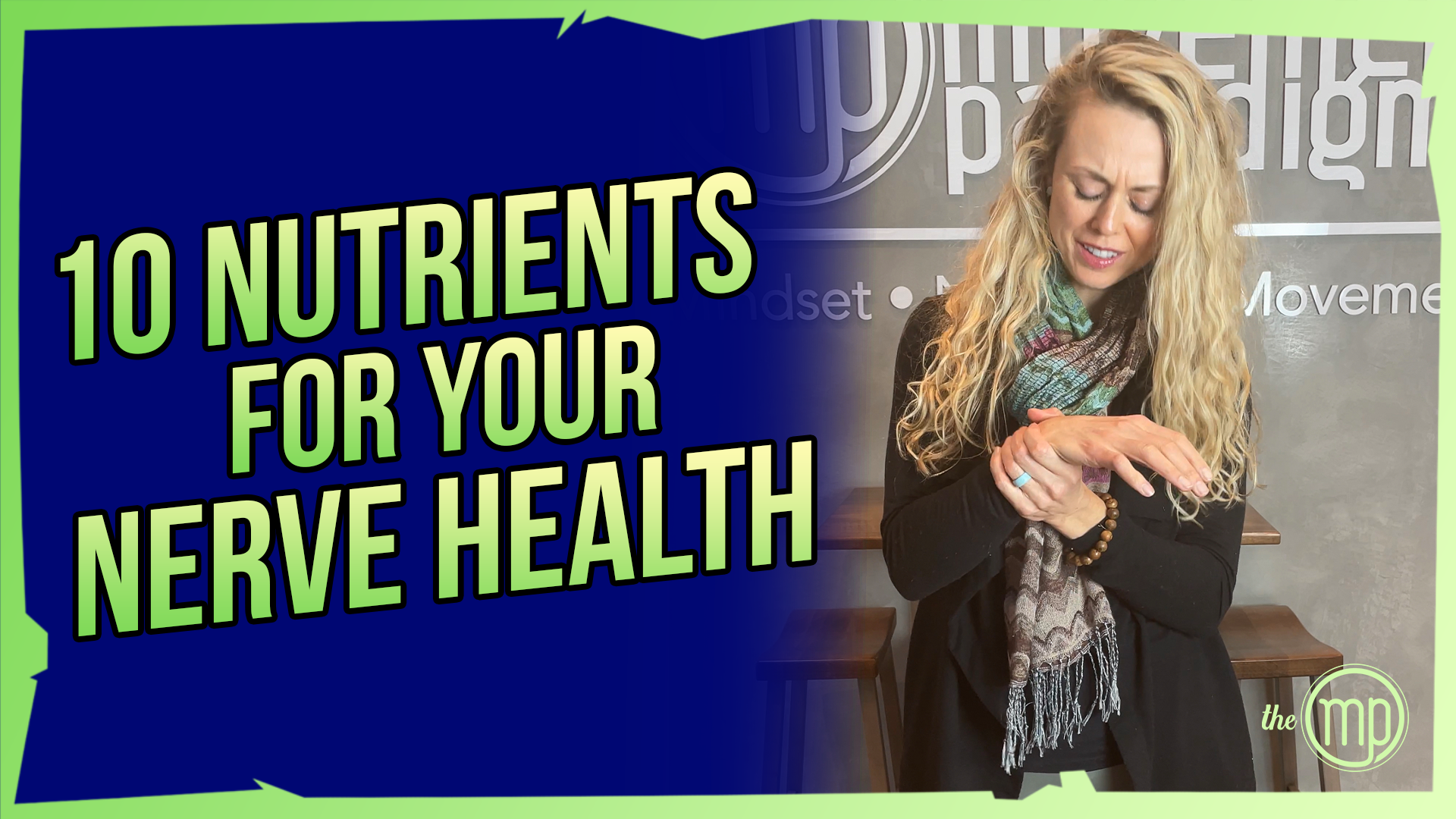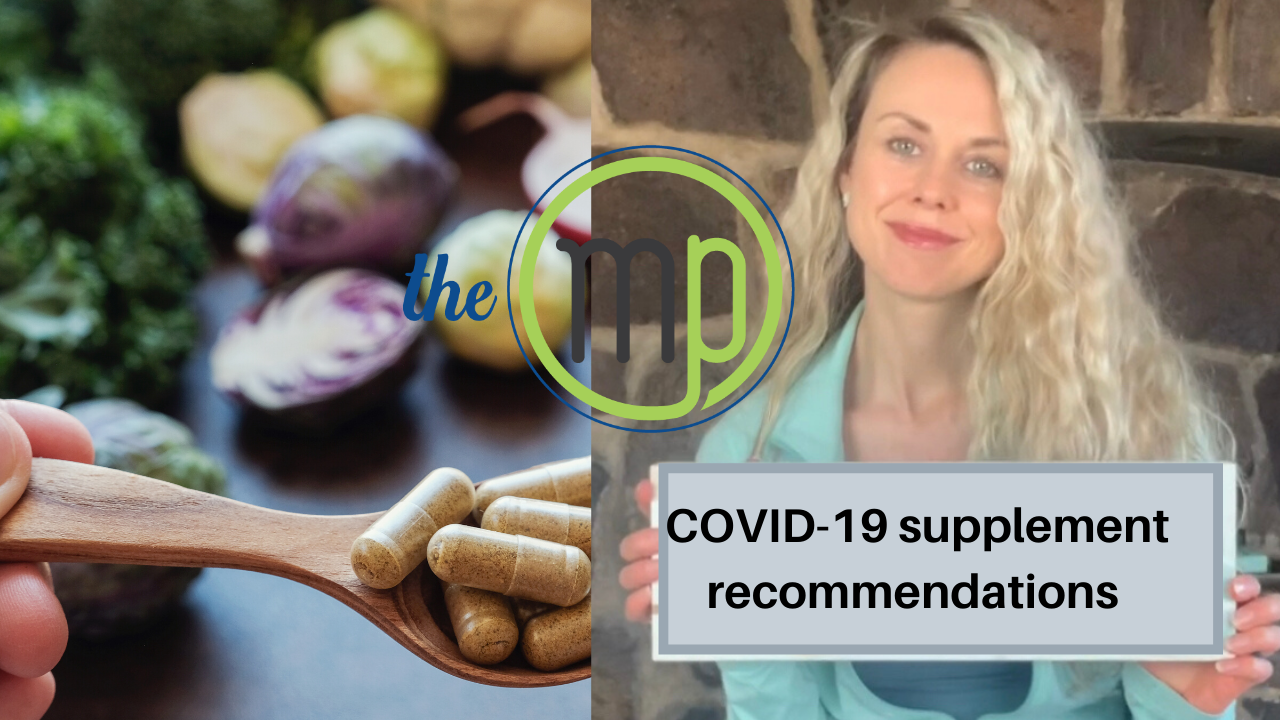Do you suffer from chronic pain? Perhaps you’ve had pain for greater than three months, and you’re not sure how you can support nutritionally? Fortunately, there is so much high-quality evidence to support how diet therapy can make a profound difference in chronic pain.
Chronic pain is associated with pro-inflammatory states which are linked to peripheral and central sensitization. This is when the brain perceives that there’s pain, and even a heightened sense of pain with very little stimuli, yet there is no tissue damage.
Rather watch or listen than read?
Additionally, the mitochondria, which is essentially the powerhouse of our cells, are also associated with chronic pain. The damage to the mitochondria can be driven by how we eat. Consuming pro-inflammatory foods, such as the Standard American Diet—the Western Diet—which is rich in sugary foods, alcohol, processed meats, and enriched grains, can contribute to inflammation and even damage the mitochondria. Therefore, with the Standard American Diet, there becomes an imbalance between our essential fatty acids, which we need for optimal health, and pro-inflammatory markers. That’s where a specific diet therapy comes in.
The first thing we want to do is address the inflammatory markers. The Mediterranean diet is one of the best and well-researched diets that has been shown to decrease inflammation. Think of a diet comprised of fish, legumes, olive oil, low in grains, and high in vegetables – also referred to as an anti-inflammatory diet.
5 ways that you address your chronic pain through diet
1) Decreasing Inflammation
The best way to do this is through an elimination diet. Eliminate the potentially pro-inflammatory foods for at least three weeks and then slowly reintroduce them, one at a time. These include gluten, dairy, sugar, alcohol, caffeine, coffee, tea, corn, soy, processed meats, red meat, chocolate, tea, coffee, and shellfish. If you don’t want to do a full elimination diet, you can do a modified version—eliminate gluten and dairy, for example. These two definitely can play a role in inflammation, and specifically chronic pain. If you’re eating a lot of sugar, this is also a great place to start. Sugar is a massive pro-inflammatory agent, so decreasing sugar in your diet would be very beneficial.
2) Calorie Reduction
When we are consuming fewer calories than required by our basal metabolic rate, then we can not only increase our brain’s ability to generate new neurons by decreasing free radicals, but we can also increase ATP, the energy source of the cells, and we can increase our number of mitochondria. These all could play a huge role in inflammation and pain.
3) Intermittent Fasting
Intermittent fasting, an eating pattern that cycles between periods of fasting and eating, can help turn on genes that help cells survive by reducing inflammation. There are many different ways to include intermittent fasting in your life. Fasting from seven o’clock at night until seven o’clock in the morning would be a 12-hour fast. You can slowly increase that to a 16 hour fast, or you can do 24-hour fast two days a week. There are many options to suit your lifestyle and it is strongly recommended to start slowly.
4) Specific Nutrient Supplementation
Omega 3’s, vitamin D, vitamin E, vitamin B-12, and magnesium have all been shown to impact chronic pain. There are other nutrients that also help specifically with chronic pelvic pain, such as vitamin E, B1, and B3.
5) Gut Health
Seventy percent of your immune system is in your gut. If there is an inflammation issue, we should start in the gut. So, do you need to include prebiotics, probiotics, or do you need a specific gut health protocol? If you are not managing gut health properly, then you are not managing chronic pain and inflammation well, either.
These are just a few of the ways that we can use diet to influence chronic pain. When we have that central sensitization of the nervous systems, our brain still perceives that there’s pain, yet there is likely no tissue damage. Our nervous system is heightened, and we can begin to associate chronic pain with pro-inflammatory markers. We can use diet to decrease inflammation and optimize our micronutrient, antioxidant, and phytonutrient profile to begin to bring our body back into a state of balance and healing.
Reach out for a 15-minute FREE discovery session to see how we can help you on your journey.
For more content, make sure to subscribe to my YouTube channel here.
Other things that may interest you:
IS YOUR GUT PREVENTING YOUR WEIGHT LOSS?




